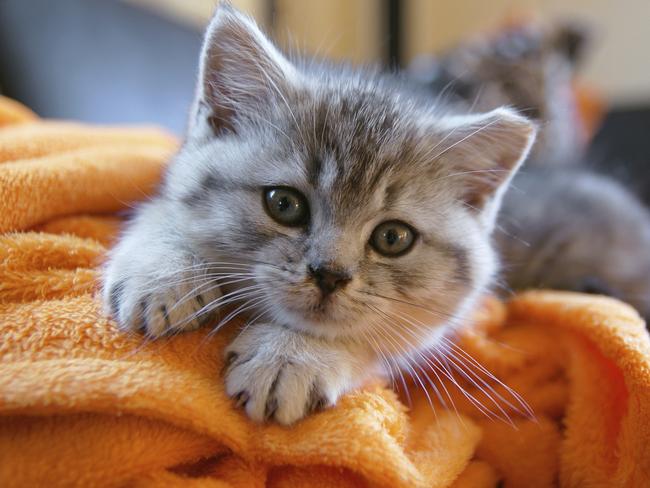Why multi-tasking is a myth
WITH ever more work piling onto our desks, you’d have to be the most adept multitasker to get it done. But multi-tasking is a myth and here’s how to convince your boss.
MY FRIGGIN’ cat, who is loving and cute (as far as cats go), has two speeds: Sleep, and “pay attention to me right meow.”
At the moment, he’s perched on my desk, inching his foot closer to my mouse every time I try to move it away, because that’s what they do. At the same time, my Gchat is blinking with messages from my wife and friends. Another chat client I use for another job is on fire with my co-workers discussing lunch plans. These distractions, I estimate, will make it such that writing a roughly 1,000 word article (something I can usually do in 20 minutes) will take about 40 minutes.
The cat is now peering down at me from behind my iMac, beckoning me. Fine, five minutes. We can play.
As it turns out, I’m not wrong in hypothesising that these distractions affect my work. Researchers from George Mason University wondered the very same thing. Their findings indicate that distractions are a real problem in the workplace.

“People don’t realise how disruptive interruptions can be,” said Cyrus Foroughi, co-author of Do Interruptions Affect Quality of Work? and a Ph.D. candidate at George Mason University’s Human Factors and Applied Cognition program. “There is value in determining whether interruptions affect the quality of the tasks that many people perform regularly, such as writing essays or reports.”
For the study, they took two groups of people and assigned them a topic on which they were told to outline and write an essay. One group was interrupted multiple times with unrelated tasks, while the control group was left to write in silence. Unsurprisingly, the experimental group was graded much more poorly and also ended up writing fewer words.
I just emptied the cat’s litterbox, because apparently it was too dirty and he wouldn’t stop scratching at the sides.
Even if you don’t work from home with a needy cat, you’re probably aware of how maddening distractions can be. “Multi-tasking” has become perhaps the biggest workplace buzzword of the 21st century. Modern employees are expected not to focus on a singular task, but instead juggle several smaller, competing tasks.
Part of the reason for that, I think, is due to the nature of the modern service economy — most of our core jobs require little in the way of either time or mental horsepower, so it stands to reason that we can afford to fill in the rest of our eight hours with supplemental tasks.
There’s a problem with that, of course: Multitasking is not only essentially a myth, but attempting to do it only serves to make us worse at it. More recently, researchers in England found that multi-tasking literally makes you dumber than smoking pot. Not only are we not designed for multi-tasking, it’s actually detrimental to our health. Make sure you pass that along to your boss, and let me know how that goes.
Circling back to the George Mason study on distractions, it all kind of comes together. Since we can’t technically multitask, all we’re really doing is rapidly switching between singular focused tasks. In that scenario, the scenario every office worker finds himself in every hour of every day, each new task we need to handle effectively acts as a distraction. If you’ve been able to focus enough to get this far, I’ve already covered how that can seriously affect the quality of your work.

“Interruption can cause a noticeable decrement in the quality of work, so it’s important to take steps to reduce the number of external interruptions we encounter daily,” said Foroughi. “For example, turn off your cell phone and disable notifications such as email while trying to complete an important task.”
That’s about all you can do, really. When the very nature of your job is essentially a series of high-priority interruptions, your best bet is to mitigate the amount of interruptions you allow from non-job-related sources.
Close the tab with your personal email. Close the office chat client. Close the tab with this article (don’t do that, though). If you can, find ways to isolate yourself, at least for small chunks of time, so you can focus and get your most important work done. Work in a noisy-ass cube farm? No problem, your office must have some unoccupied conference rooms in which you can set up shop. Work in one of those cool, hip, “modern” open offices. Those can be tough, but most of those offices have spaces set aside for phone calls and whatnot. Bring your laptop and do your best to look busy.
Of course, employers are notoriously shy about doing anything that even smells like it would mean making it so that employees do less work for the same amount of money. Don’t expect your boss to read this, or even the full study, and arrange a meeting where he announces that everyone will now be allowed to arrange their days such that they can tackle one thing at a time, and that conference calls are a thing of the past. Still, as research continues to mount demonstrating just how counterproductive the modern office environment can be, forward-thinking companies will inevitably catch on and structure themselves accordingly.
Just think — in a few years, maybe you, too, will be allowed to work alone in the sanctity and solitude of your home. Just don’t get a cat.
This article originally appeared on Ask Men and was republished here with permission.
Originally published as Why multi-tasking is a myth


